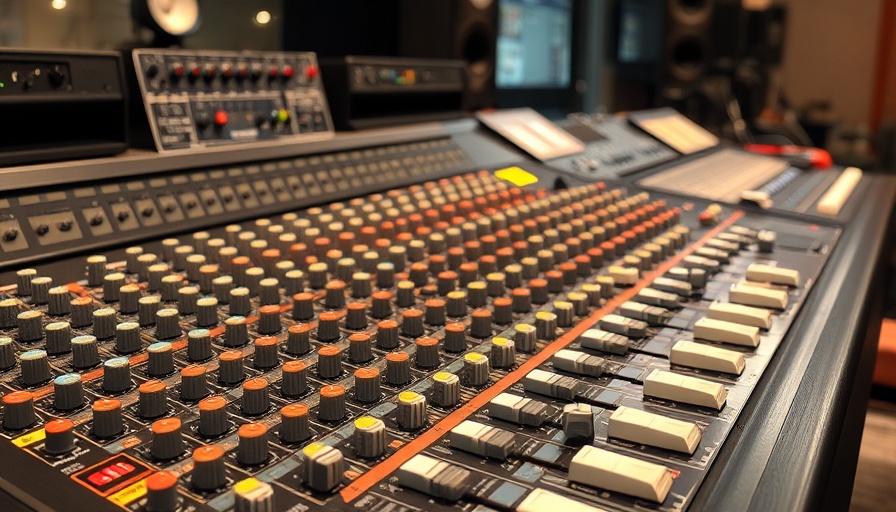
The Evolution of Music Through AI: An Overview
Artificial intelligence is not just a buzzword; it's a catalyst for change across varied industries, none more so than in the music arena. Once restricted to simple playlist algorithms, AI has rapidly transitioned into sophisticated technology that shapes how music is composed, produced, marketed, and consumed. With music platforms evolving with machine learning and neural networks, the landscape of music creation is on the brink of a major overhaul.
AI's Role in Music Production: An Empowering Tool
AI tools are not merely enhancing the music production process; they serve as collaborative partners for artists. Aspiring or seasoned musicians can leverage AI-generated music not just to supplement their creative efforts, but to inspire innovation in their music-making processes. Platforms like OpenAI’s MuseNet and AIVA exemplify this capability by creating original tracks, enabling artists to explore melodies and structures that may have otherwise remained untapped.
Commercial Implications: Marketing and Distribution
Moreover, AI's application extends into marketing and distribution channels. AI-enhanced analytics can predict audience preferences, enabling music labels and independent artists alike to craft personalized marketing strategies. Tools powered by AI can generate insights from streaming data, allowing marketers to refine their promotional efforts by understanding listener trends and habits. This strategic approach elevates how music reaches different demographics and maximizes engagement.
Ethical Considerations: The Human Touch in AI Music
A critical debate surrounding the rise of AI in the music industry pertains to the ethical implications. While AI technologies promise creativity without limits, they also raise questions about authenticity and the value of human emotion in music. As AI-generated music continues to gain traction, can it truly replicate the emotional resonance crafted by human hands? Thought leaders in both technology and the arts are discussing how to strike a balance, ensuring that technology serves as an enhancement rather than a replacement for human creativity.
The Future: Opportunities and Predictions
Looking ahead, the future of music intertwined with AI holds enormous potential. We can anticipate more collaborative platforms, where artists and AI will not just coexist, but create music that bridges technology and human experience. Some foresee extensive use of AI in live performances, leveraging real-time data to adapt music to audience reactions. This could revolutionize concerts, making each performance uniquely tailored to the attendees.
Your Role in this Transformation
For business professionals and marketing managers, understanding the implications of this technological shift in music can be invaluable. It’s crucial to stay updated on tools and trends that may redefine marketing strategies. As consumer behaviors evolve with AI influences, crafting innovative approaches to connect with audiences will be essential for success.
Your Takeaway
Embracing AI in the music industry not only challenges existing conventions but also opens doors for creative collaboration, commercialization, and ethical discourse. As we stand on the edge of this revolution, being proactive and informed will allow professionals in tech-driven industries to navigate this exciting landscape effectively. Now is the time to leverage AI's advantages while engaging ethically with the deep cultural essence of music.
 Add Row
Add Row  Add
Add 




Write A Comment